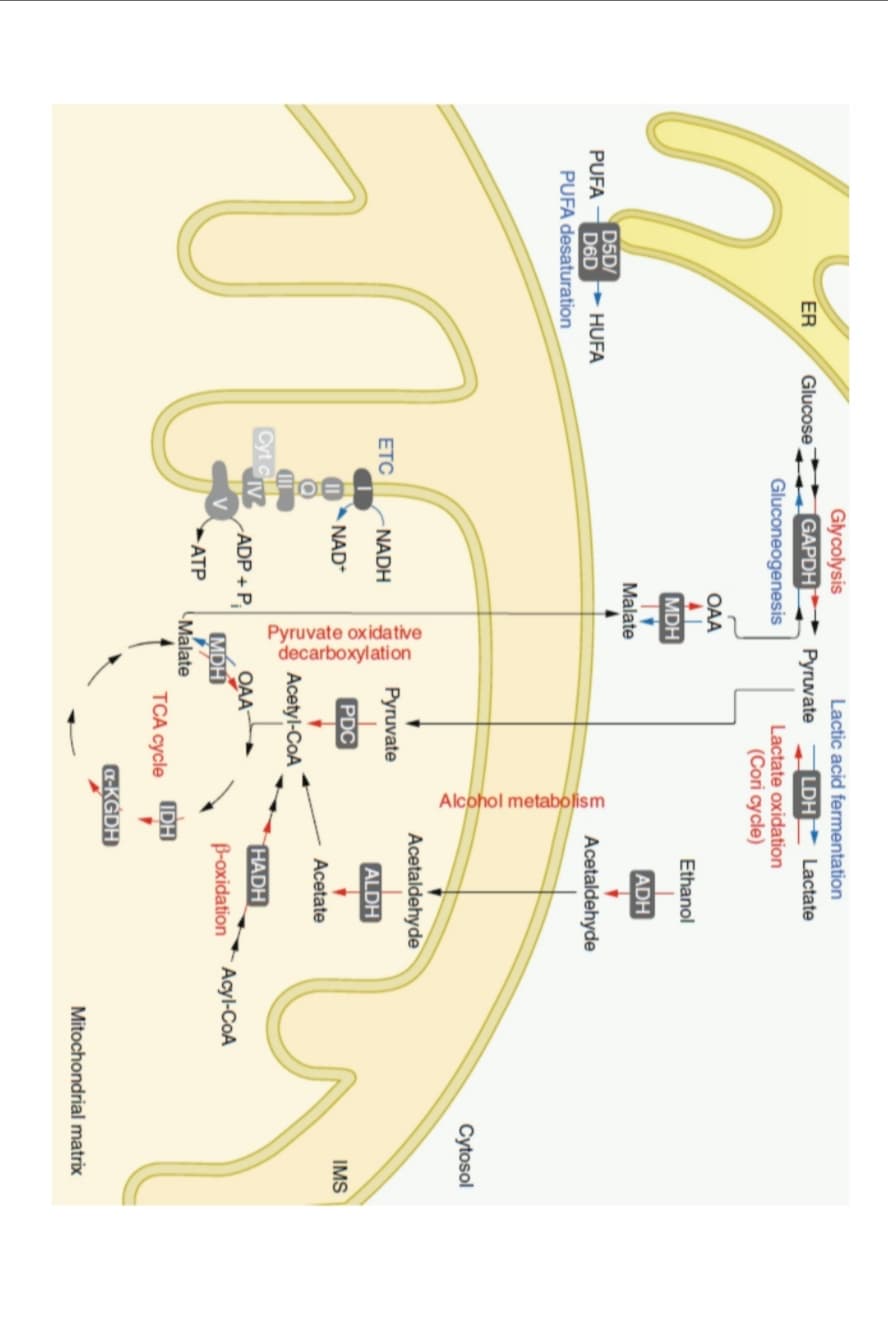In the section dealing with “NAD+ in disease” it is mentioned that metabolomics results indicate that impaired mitochondrial function contributes to some of the mentioned diseases. Which metabolites can potentially accumulate when complex I of the electron transport chain is defective? Use Fig 1 for guidance
In the section dealing with “NAD+ in disease” it is mentioned that metabolomics results indicate that impaired mitochondrial function contributes to some of the mentioned diseases. Which metabolites can potentially accumulate when complex I of the electron transport chain is defective? Use Fig 1 for guidance
Biochemistry
6th Edition
ISBN:9781305577206
Author:Reginald H. Garrett, Charles M. Grisham
Publisher:Reginald H. Garrett, Charles M. Grisham
Chapter22: Gluconeogenesis, Glycogen Metabolism, And The Pentose Phosphate Pathway
Section: Chapter Questions
Problem 11P: Understanding the Mechanisms of Reactions Related to Transketolase The mechanistic chemistry of the...
Related questions
Question
In the section dealing with “NAD+ in disease” it is mentioned that metabolomics results
indicate that impaired mitochondrial function contributes to some of the mentioned
diseases. Which metabolites can potentially accumulate when complex I of the
electron transport chain is defective? Use Fig 1 for guidance

Transcribed Image Text:Alcohol metabolism
Giycolysis
GAPDH
Lactic acid fermentation
ER
Glucose
Pyruvate
LDH Lactate
Gluconeogenesis
Lactate oxidation
(Cori cycle)
OAA
Ethanol
MDH
ADH
Malate
D5D/
D6D
PUFA
+ HUFA
Acetaldehyde
PUFA desaturation
Cytosol
Acetaldehyde
ETC
NADH
Pyruvate
ALDH
* NAD*
PDC
IMS
Acetate
Acetyl-CoA
Cyt cy
HADH
-ADP + P,
OA-
MDH
B-oxidation Acyl-COA
►ATP
LMalate
DH
TCA cycle
a-KGDH
Mitochondrial matrix
Expert Solution
Step 1
Complex I is the first enzyme of the respiratory chain. It oxidizes NADH, which is generated through the Krebs cycle in the mitochondrial matrix and uses the two electrons to reduce ubiquinone to ubiquinol. It is the largest and least understood component of the mitochondrial oxidative phosphorylation system.
Step by step
Solved in 2 steps

Knowledge Booster
Learn more about
Need a deep-dive on the concept behind this application? Look no further. Learn more about this topic, biochemistry and related others by exploring similar questions and additional content below.Recommended textbooks for you

Biochemistry
Biochemistry
ISBN:
9781305577206
Author:
Reginald H. Garrett, Charles M. Grisham
Publisher:
Cengage Learning

Biochemistry
Biochemistry
ISBN:
9781305577206
Author:
Reginald H. Garrett, Charles M. Grisham
Publisher:
Cengage Learning